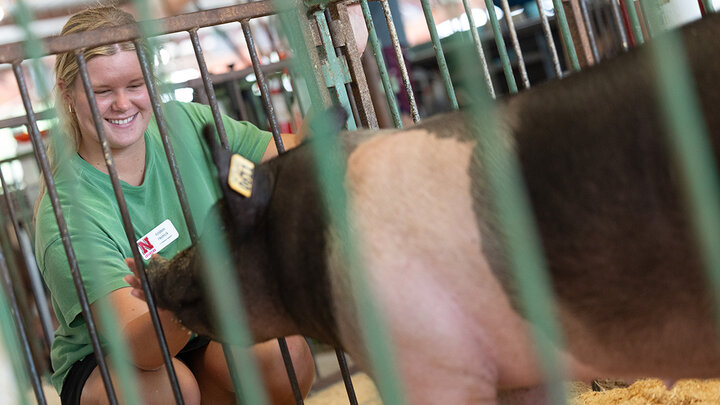By: Jesse Starita
Lincoln, Neb. —The Nebraska Water Center (NWC) at the University of Nebraska-Lincoln has collaborated with partners across Nebraska since its founding in 1964. Examples include extension research to benefit individual producers, equipping budding water professionals with employable skills and engaging Nebraskans around water issues through tours, conferences, presentations and publications. Key to this work is a strong relationship with Nebraska’s state agencies.
For years, NWC has organized a brown bag lunch series that provides a stage for Nebraska faculty and researchers to share their work with professionals who manage the state’s water resources. This spring, NWC and the Nebraska Department of Environment and Energy (NDEE) are partnering for a virtual series showcasing the university’s deep well of water and natural resources experts.
The series – held every other Thursday at noon via Zoom – continues April 15 with Jodi Delozier, a doctoral candidate in Nebraska’s School of Natural Resources. Delozier and her advisor, Dr. Mark Burbach, recently published a paper based on her PhD research. The paper, “Boundary Spanning: Its Role in Trust Development between Stakeholders in Integrated Water Resource Management,” explores the role of trust in managing complex water challenges and is the focal point of her brown bag presentation.
“As natural resource challenges become more intense, state and federal agencies are searching for strategies to develop better working relationships with local organizations, community members, and citizens,” said Delozier.
“Our research has found that boundary spanners play an important role in creating conditions that encourage trust building, thus increasing the opportunity for greater cross-disciplinary collaboration and an exchange of knowledge between stakeholders.”
Boundary spanners reach across organizational borders to build interconnections that help manage complex problems, inform policy and share knowledge. In his role as NDEE’s Water Quality Assessment Section Supervisor, Ryan Chapman spans boundaries between agencies, academia and citizens to elevate water quality. He also coordinates his agency’s participation in the brown bag series.
“NDEE has a long history of collaboration, and I am delighted that we are able to continue building relationships through this series. These partnerships help make it possible for Nebraskans to live, work, and enjoy a healthier environment,” said Chapman.
Details about each event are available on the Nebraska Water Center's event calendar.
Upcoming brown bags include:
- April 29 with Dr. Javed Iqbal on “Nutrient Management to Improve Crop Production and Environmental Performance in Nebraska
- May 13 with Dr. Jesse Bell on “Water, Climate and Health in Nebraska”
- May 27 with Carla McCullough on “Watershed Science Education”
- June 10 with Balkissa Ouattara on “Age-adjusted Pediatric Cancers Incidence Related to Nitrate Concentration Measured through Citizen Science in Nebraska Watersheds”


